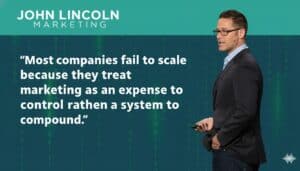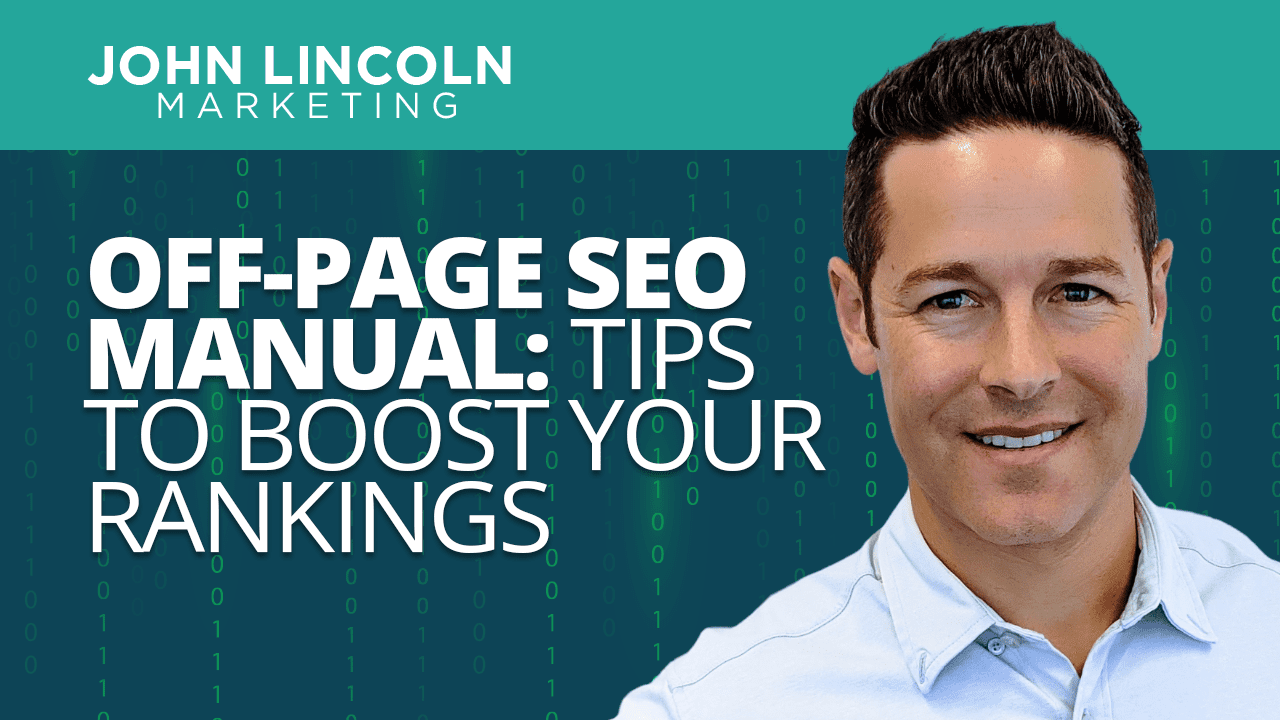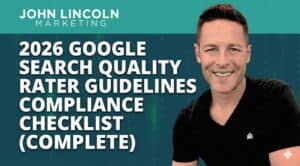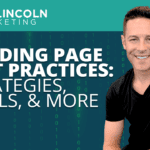
Why Compounding Growth Is the Most Undervalued Digital Marketing Strategy for Investors
Most companies in the $20 to $400 million stage are doing a lot of digital marketing, but very few feel confident that it is actually

With the right SEO strategies in place, you’ll gear your website for success in the long term.
You might be familiar with specific on-page SEO tasks, but what are some critical off-page SEO techniques? Here we’ll answer this question and more to help you steer these efforts in the right direction.
So, what is off-page SEO, and how does it work? Let’s dive in!
Off-page SEO is a critical component of any digital marketing strategy. It involves optimizing all content you generate outside of your website-this content supplements on-site content to further boost SEO.
If anything, off-page SEO is just as important as on-page SEO for search engine rankings. You might believe your website needs the most attention here, but there’s plenty to do off-site.
You should never underestimate the value of off-page SEO to your website.
Look at it this way: Google wants to know that others trust your website as an authority. The more off-site content vouches for your website, the better the latter will look. Having high-quality backlinks leading to your site from sources can help. At the same time, there are many other ways to use off-site SEO to your advantage.
Through great off-site SEO practices, you can appear more credible to Google.
On-page and off-page SEO have specific differences to keep in mind. However, they’re both crucial for strong SEO. Optimizing for both will significantly boost your rankings and keep you above competitors.
The main difference between on-page and off-page SEO is that the on-page is easier to manage. You’ll have more control over keyword optimization and all technical elements. For instance, you can add alt-tags to images that describe images using text. You can also make sure your content has plenty of working internal links.
When developing and optimizing on-page content, you’ll perform many tasks. These include content creation, title tag optimization, URL optimization, and keyword usage. You’ll have complete control over these when developing and curating content.
Meanwhile, off-page SEO is a bit more complex. This content includes components that extend beyond your website. It’ll have backlinks that go back to your main website. For example, it will also consist of mentions across the web on other websites. In turn, your website can benefit from more authority.
The main issue with off-page SEO is that it gives you less control. The upside is that you can get around this to ensure it gives you the desired results.
One of the most crucial strategies for off-page SEO is link building. Google wants to see a website with ample high-quality links on other platforms linking back to it.
Link building entails getting hyperlinks on other websites of greater authority. Then, search engines will crawl the links between all pages, followed by crawling websites.
It will do well if search engines see your website appearing all over the web through links. Then Google will be more inclined to rank this website over less reputable competitors.
Ultimately, link building is the best way to boost your off-page SEO is via link building.
Keep in mind that link building is always about quality over quantity. You can have thousands of links, but they’ll do you no good if they’re spammy or broken. Bad links will actually hurt your website as Google perceives your website as a spammer.
In link building, there are three main types of links to consider. Not all of them will help your off-page SEO, but some will.
Natural Links
Built Links
Created Links
Let’s take a closer look at each of these link types.
Natural Links
These are links that appear naturally in others’ content. You won’t strategically place these on other websites, making them the best links.
Over time, these links will build authority for your website. They show other people saw your content or product and found it important enough to share. In sharing, they create a link for their own content.
Natural links don’t appear in paid or sponsored content of any kind. They don’t feature tracking parameters and redirect without monetization or JavaScript. There’s no perceivable underlying motive here to build backlinks.
Built Links
These links appear in paid or sponsored content, unlike natural links. You can get these by asking people to promote your content.
They’re not as authoritative as natural links but can promote valuable content.
When acquiring these links, ensure they appear on suitable, trusted sources. Low-quality built links could hurt rather than help your rankings.
Created Links
Also known as user-generated links, created links are those you create to push content. They often appear spammy.
Google tends to punish websites for overusing created links. As such, you need to be careful with these links.
You may create links by commenting on unmoderated blogs or using other tools. For instance, created links may appear in embeddable widgets, anchor text, and infographics.
Creating top-quality content is the best way to get the most from your link-building strategy. You can then connect with experts through solid relationships. If people find value in your content, they’ll want to share it with their audiences and others.
Links are critical for any off-page SEO strategy, but they’re often hard to get.
When developing your link-building strategy, you can incorporate the following strategies:
Content Promotion: Determine what your strategy is going to be around for a specific piece of content.
Help a Reporter Out (HARO): Use PR pitching to reach out to big publications in your industry.
Sponsored Content: You can pay to have your content appear on the web without worrying about penalties. Sponsors will include your content in an advertorial disclosing the sponsorship.
Unlinked Mentions: Check to see if people mention your brand by name online. You can then reach out to them and ask them to link to your website with those mentions.
Profiles, Reviews Sites, and Infographic Sites: Review sites are especially crucial across a wide range of industries.
Influencer Marketing: Connecting with social media influencers is another great way to build links. You’ll expose your website to many audiences who might not otherwise find you.
Guest Blogs: Guest blogs help build links in industry publications. You’ll establish yourself as an industry authority when you submit a guest post. People will come to trust you as a source of valuable information.
These are simply some potential strategies you can use for link building.
You need to monitor your backlinks to ensure they’re doing well. If you want to check your backlink profile, there are some tools you can use.
One tool is Moz’s Spam Score, which allows you to easily check your website’s profile health. All you need to do is enter your website; the tool will give you a spam score. This score indicates how many spam links you have.
Another tool you can use is Link Detox. This tool allows you to export links from all over the web. Based on the links from all these sources, the tool will tell you which are spammy.
With the help of these and other tools, you can review your links. If you see any bad links, you should remove them.
If you find bad links in your backlink profile, it’s important to eliminate them.
You can take these steps to remove bad links and improve your profile:
Locate the sites where bad links are present. You can use tools like Moz and Link Detox to track down sites with bad links.
Request removal from the website. While many sites are unlikely to remove bad links upon request, Google requires you to take this step.
Disavow links to prevent bad links from hurting your website. A tool like SEMrush’s Backlink Checker makes it easy to do so.
When building an outreach campaign for your off-page SEO strategy, there are key steps to take.
Here is a brief guide to building a strong outreach campaign to build backlinks:
Make sure you have a high-quality asset. Your content should offer something unique and valuable to audiences. If your content is great, this will entice people to link to it.
Proofread the content in your outreach campaign. Any spelling or grammatical mistakes will make your content look bad. Also, proofread your outreach email content.
Keep your email subject line short and conversational.
Research the company or individual you want to promote your content.
Prepare to follow up several times after sending the initial email. Emailing only once will lead to a very low success rate.
Send emails from a company domain. This will lend more credibility to you and your brand. Your signature should also align with this domain and associate you with the company.
Offer a mutual relationship that discloses the benefits for you and the promoter. For instance, you can offer social media shares in exchange for a link.
Educate promoters on how your link will improve their content. Show that their readers, viewers, or users will benefit from the content you’ve created.
Apart from link building, there are several other key strategies that you can use for off-page SEO. These include:
Social media offers some great opportunities for off-page SEO.
On social media platforms, create a positive presence. A steady presence will go a long way in boosting brand awareness and your reputation.
You can also add testimonials from your clients or customers. These testimonials can make more audiences trust you based on previous results.
Also, create unique images, connect with influencers, and interact with users. Taking all these steps will enhance your social media presence.
Your content should also be of the highest quality to connect with users. In your content marketing efforts, always strive to create the most valuable content. Ensure your content appeals to your audiences with every blog post, video, etc.
Some specific types of content you can create include guides, infographics, and studies. You can also write testimonials or submit guest blog posts to certain publications.
In your content, link to those you want to promote your content. You can then let them know that you’ve linked to them. This might encourage them to link back to you.
Another form of off-page SEO is professional outreach. It involves putting yourself out there in different ways.
One method is Helping a Reporter Out, or HARO. This strategy is great for back-linking. You can reach out to big publications in your industry for more exposure. For example, you can land in publications like Forbes and Huffpost as a contributor.
You can also engage in professional outreach by holding an event or giveaway. Give to your community or people in your niche while drawing more attention to your brand.
Be sure to build quality relationships with important figures, too. For example, establish a strong relationship with bloggers, journalists, and other content creators. These people can further expose you to new audiences and secure backlinks.
Finally, consider joining a professional association in your industry. This will help expose your content to secure audiences. You can also get a link to your website from the association’s website and social media.
As you can see, off-page SEO, while somewhat uncontrollable, can play a huge role in increasing your SERP ranking.
While it requires more work and effort on your part, the return on investment is unmatched! When other brands and companies admit that they turn to you for information, it’s only a matter of time before consumers do the same.
If you’re looking for a way to increase brand awareness and cement your brand as a thought leader in your industry, off-page SEO is a great way to do it!
1. What is off-page SEO?
Off-page SEO work is a way to increase your SERP ranking through activities that take place off of your actual website.
2. What are some off-page SEO techniques that a brand should know?
Link building is key to your off-page SEO! Be sure to build quality relationships that produce natural links.
3. What should be on my off-page SEO checklist?
Focus on producing quality content that your audience wants to read! You should also work on building sustainable relationships and partnerships with journalists, bloggers, and other content creators.
4. Will off-page SEO make or break my website?
Not necessarily. But it does have the ability to significantly improve your SERP ranking, which does make or break your site.
5. Are there agencies or consultants that will help me develop an off-page SEO strategy?
Of course! There are many digital agencies and consultants that are well-versed in how to create a successful off-page SEO strategy.
Welcome to John Lincoln’s personal website. You can learn about John Lincoln’s books, films, book him to speak and contact him. John is directly associated with many of the businesses mentioned on this website and freely discloses this information.

John Lincoln is CEO of Ignite Visibility, one of the top digital marketing agencies in the nation. Outside of Ignite Visibility, Lincoln is a frequent speaker and author of the books Advolution, Digital Influencer and The Forecaster Method. Lincoln is consistently named one of the top digital marketers in the industry and was the recipient of the coveted Search Engine Land “Search Marketer of The Year” award. Lincoln has taught digital marketing and Web Analytics at the University of California San Diego, has been named as one of San Diego’s most admired CEO’s and a top business leader under 40.
Want to get in touch with John Lincoln? Click Here To Reach Out.

Most companies in the $20 to $400 million stage are doing a lot of digital marketing, but very few feel confident that it is actually

Google Search Quality Rater Guidelines Compliance Checklist Google’s Search Quality Rater Guidelines (SQRG) are not a direct ranking algorithm, but they are the playbook human
Hey everybody, this is John Lincoln. It has been a while since I last updated this website. The last post here was on August 2,
 Landing Page Best Practices: Strategies, Tools, and More
Landing Page Best Practices: Strategies, Tools, and More When looking for landing page best practices, it can be a jungle out there. To help you meet your goals for